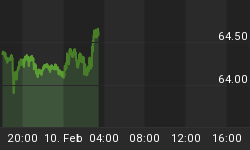What is going on in the Eurozone impacts, and will continue to some perhaps significant degree impact, everywhere else. Two recent articles, reported that on April 17 The International Monetary Fund released its 2012/2013 forecast for Italy. That forecast is reported as targeting:
- Italy's deficit as a % of output at 2.4% and 1.5% in 2012 and 2013 respectively, as contrasted with the Italian Government's current forecasts of 1.6% in 2012 and a balanced budget in 2013;
- Italy's public debt, said to be 2nd highest to Greece in the Eurozone, at 123.4% in 2012, and 123.8% in 2013;
- Italy's economy to shrink by 1.8% in 2012, and by a further 0.3% in 2013;
- Italy's 'primary balance', being the budget balance excluding debt service costs, at +3.0% and +4% of GDP in 2012 and 2013 respectively, as contrasted to higher recent Italian Government targets of 3.4% and 4.9% respectively; and,
- Italy's 'tax burden', being fiscal revenues expressed as a % of GDP, at 48.3% and 49.0% of GDP in 2012 and 2013 respectively, as contrasted to lower the recent Italian Government target of 43.8% in both years.
Only about three months ago, shortly before Greece Sovereign Debt was restructured, I began to warn about Spain as the next Eurozone country to focus on. That has turned out to be 'all the news', and reports abound every day on Spain's:
- Sovereign Debt:GDP ratios;
- current federal deficits;
- unemployment rate (latest reported around 23%) and youth unemployment rate (latest reported around 51%);
- (this week's) rising bond interest rates;
- required further European Central Bank and IMF funding; and on
- fear of Spain-related contagion issues.
Measured by GDP, Spain is the fourth largest Eurozone economy, the fifth largest European economy when the United Kingdom is considered, and the world's twelfth largest economy.
And so we come to Italy. Italy (IMF 2011 statistics from Wikipedia) is:
- the third largest Eurozone economy, with only Germany and France being larger;
- the fourth largest European economy when the United Kingdom is considered;
- the world's eighth largest economy; and,
- measured by GDP, boasts an economy that measured by GDP is about 50% larger than Spain's.
Neither article reports the current Italian unemployment rates, which in February 2012 is said to be 9.3%, with a youth unemployment rate of 31.9%.
The cited articles do not include commentary on the IMF's Eurozone and World Macro-economic assumptions that must underlie the IMF's 2012 and 2013 forecasts for Italy's economy. Perhaps importantly, the IMF is reported as having recently upgraded its World and U.S. 2012 economic growth targets from 3.3% to 3.5%, and from 1.8% to 2.1% - while maintaining a +8% 2012 economic growth rate for China.
Forecasting much of anything is extremely tenuous in the current world economic climate. This is true for forecasts are generated by the IMF, the U.S. Federal Reserve, the 'economist on the street', or anyone else. One has only to reflect on recent U.S. Federal Reserve forecasts for confirmation.
Accordingly, given ongoing world economic uncertainty and volatility, I suggest you begin to pay very careful attention to Italy going forward, but do so without losing sight of what is transpiring in Spain.
Italy to Miss Budget Deficit Targets, Debt to Rise: IMF
Source: CNBC, (from Reuters), April 17, 2012
Reading time: 3 minutes, thinking time longer
As We Assured Clients Two Years Ago, Italy's Riding the Broken Promise Express To Restructuring
Source: BoomBustBlog, Reggie Middleton, April 17, 2012
Reading time: 4 minutes
Italy's Jobless Rate Increases to Highest Since 2001
Source: Bloomberg, Chiara Vasarri and Lornzo Totaro, April 2, 2012
Reading time: 3 minutes
Gold needs to re-establish safe have appeal in the short term
Content includes: IMF growth forecasts
Source: Commodity Online, April 18, 2012
Reading time: 4 minutes
















